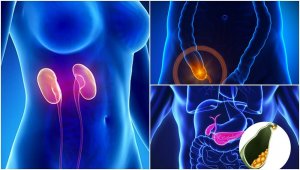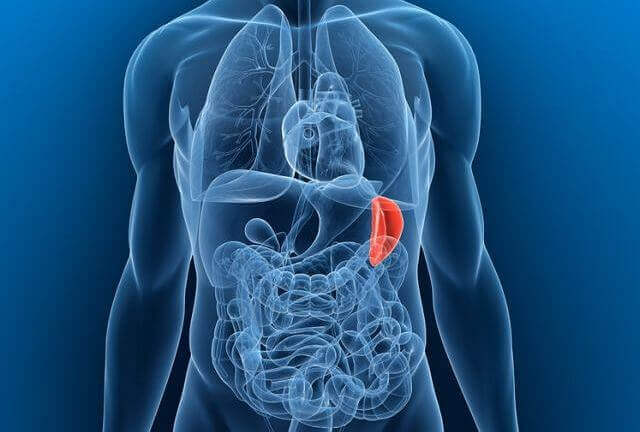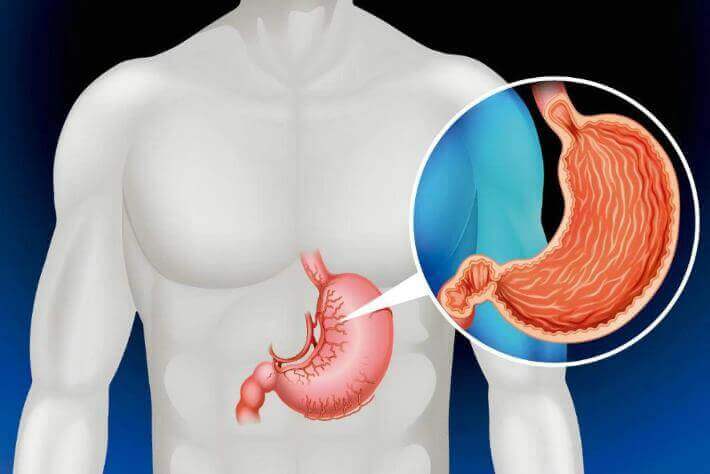7 Organs that You Don't Actually Need to Survive


Reviewed and approved by the doctor José Gerardo Rosciano Paganelli
For example, despite the fact that every one of its organs carries out a role, in the event of an accident, malformation or sickness, some aren’t absolutely necessary for survival.
In fact, over time and evolution, some have lost their function, which is why their removal doesn’t affect quality of life.
Do you know which ones they are? In this article, we want to share all the details on the main 7.
1. Tonsils

Tonsils are part of the immune system that we don’t need to survive. While they’re helpful for protecting the entrance of the airways from bacterial infections, they stop becoming vital after we turn three.
In fact, some people even believe that it’s better to remove them at an early age in order to avoid health problems.
- Doctors recommend removing them when a patient suffers from tonsillitis continually.
Visit this article: 3 Natural Solutions for a Sore Throat
2. The appendix
The appendix is a small, sack-shaped organ that can be found attached to the big intestine, right in the lower-right part of the abdomen.
Despite its location, it doesn’t interfere the digestive process at all. In fact, it doesn’t have any known function.
- Many people only know of its existence when it becomes inflamed and infected, causing a condition known as appendicitis, in which case, it needs to be removed.
- After its removal, there are no negative health side-effects and the patient can continue their regular life without any inconveniences.
3. The spleen

The spleen is located in the abdominal cavity and has a relevant health function: filtering blood and aiding the body in fighting against infections.
Despite this, it’s not vital and can be removed in cases of traumas or chronic illnesses.
- The patient can continue with a normal life, taking some extra precautions in order to prevent infections.
4. Reproductive organs
Reproductive organs, such as the ovaries, uterus and the testicles, have an obvious function. Despite it, they can be removed as a part of treatment for certain chronic problems.
In most cases, doctors recommend their removal to prevent a cancer from spreading. However, it also might be a recommendation as a part of a different treatment for other issues.
- Those who undergo this procedure don’t usually suffer serious after-effects and can take hormonal supplements in order to replace those that the organs previously produced.
5. A kidney

Nobody can deny that the kidneys are important for the whole body’s health. These organs filter blood, produce urine and play a role in other organ functions.
The curious thing is that, although we have two, we really only need one to survive. We can be born without a kidney, suffer kidney failure from an accident or sickness, or even donate one without it causing chronic health problems.
- Generally, people with only one kidney have a normal life expectancy and suffer very little related after-effects.
- However, certain precautionary measures are a must in order to keep the kidney healthy and avoid possible complcations.
6. The gallbladder
The gallbladder is a small, green, pear-shaped sack that hides behinds the liver. It’s main function is storing and releasing bile that aids in digesting food.
However, when it deteriorates or in the event of complications such as gallstones or cancer, doctors recommend its removal .
- Despite its role in helping digestion, living without a gallbladder doesn’t usually cause problems.
- Some patients might experience diarrhea and swelling, but only when eating irritating foods.
Want to know more? Do You Have Gallbladder Stones?
7. The stomach

Though it might seem impossible, human beings can survive without a stomach. Actually, there’s a certain surgical procedure, known as a total gastrectomy, in which the entire stomach is removed as a treatment for cancer.
In this procedure, surgeons connect the small intestine to the esophagus. Post-surgery, the patient needs to be fed through a tube for various weeks until reaching full recovery.
- Because of its complex nature, those who undergo this kind of intervention must follow a strict treatment.
- Patients can ingest most foods, but the quantities have to be made smaller.
- Dietary supplements are recommended in the event of complications with nutrient absorption.
As you can see, although it’s better to take care of these organs to keep them health, we have organs that we don’t necessarily need in order to survive in case they ever need to be removed. Amazing, isn’t it?
All cited sources were thoroughly reviewed by our team to ensure their quality, reliability, currency, and validity. The bibliography of this article was considered reliable and of academic or scientific accuracy.
- General, C. de S. (2006). Tratamiento de la Apendicitis aguda. Catálogo Maestro de Guías de Práctica Clínica IMSS–049–0, 1–12.
- Le Gac, M.-S., Delahaye, L., and Marianowski, R. (2010). Amigdalitis infantil. EMC – Pediatría 45, 1–8.
- Ic, M.E.R., Col, A.N., Surgeons, E.G.E.O.F., Of, I.O.N., and At, E. (2016). Colecistectomía. American College of Surgeons 5, 1–8.
This text is provided for informational purposes only and does not replace consultation with a professional. If in doubt, consult your specialist.








